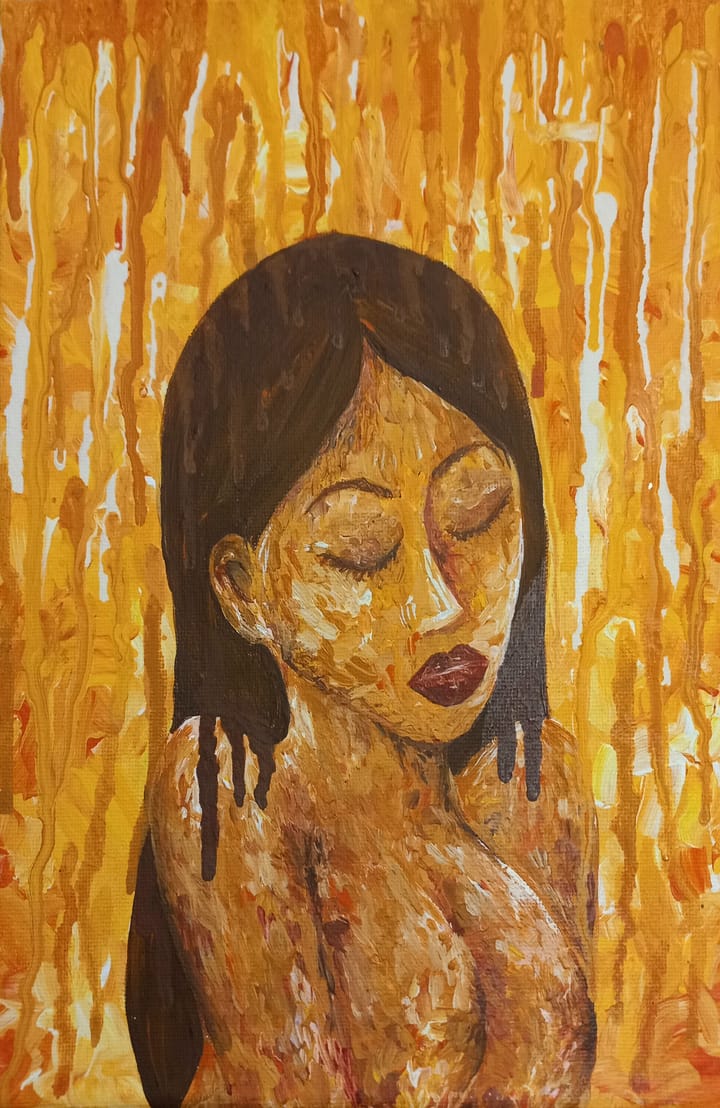MAGDALENE Explores Misery and the Divine Feminine

After spending three years removed from both the music scene and public sphere, U.K.-based singer FKA twigs has returned with her second LP, “MAGDALENE,” which was released on Nov. 8. On its surface, “MAGDALENE” may seem like a break-up album following the singer’s highly publicized split from former fiancé Robert Pattinson. While this is in part true, the heart of the album reveals itself to be a deeper exploration of the divine feminine, spiritual and physical recovery and the disparate character behind the album’s muse, Mary Magdalene.
On its face, “MAGDALENE” fits neatly into a syncopated ideal of what FKA twigs’ experimental R&B career has looked like. However, the album pushes against this label and attempts to settle into a genreless space that is drowning in romanticism and self-reflection. The singer-producer thrashes against industry expectations in refusing to reduce herself to any one sound, moving between waves of echoes, gravelly threats and swelling balladic confessions.
FKA twigs opens the album with “thousand eyes,” which introduces her solemn state of mind to the audience through a meditation on the closing chapter of a relationship. The wreckage of this romantic split becomes the bleak framework through which FKA twigs explores her fears of being a public spectacle who is known only for her shortcomings. The singer painfully ushers in this shift of self-identity by rippling digital distortions against a piano melody, which in turn creates a sense of sinking acceptance of frigidity. FKA twigs’ lacerated vocalizations bleed across her lyrics as she calls out, “If you don’t pull me back, it wakes a thousand eyes … It’s gonna be cold with all those eyes.”
The song creates a sense of internal dissonance as FKA twigs surrenders to her solitude and the public thrusting itself voyeuristically into her life. However, it is important to note that this repulsion by her viewership comes in the form of a direct confession to her audience, signaling a reluctant slipping into martyrdom of her own pain.
From “thousand eyes,” FKA twigs transitions to “home with you,” an emotional and swelling memory about discovering that the hidden loneliness of her partner reflects her own feelings of emotional separation. She also uses the track to unveil a complicated medical history that she publicly revealed for the first time on Instagram in May 2018.
The singer took to the platform to write, “I am a very private person as u all know and I have gone back and forth in my mind whether to share that this year I have been recovering from laparoscopic surgery to remove 6 fibroid tumours from my uterus. the tumours were pretty huge, the size of 2 cooking apples, 3 kiwis and a couple of [strawberries]. a fruit bowl of pain everyday.” On the track, FKA twigs reveals that she feels betrayed by her own body and that she longs to return to her home, the place where she knows she should have been all along.
The melancholy of this homeward-facing revelation is followed by “sad day,” which wisely names itself the saddest song of the album as it drags out the lulling pendulum of passion between two lovers who are resigned to the monotony of their daily lives. The track is deftly co-produced by FKA twigs alongside an all-star team including Nicolas Jaar, Benny Blanco and Skrillex.
Interestingly, the melody of the song reifies the sound of the romance’s slow death by returning to the same numbing note again and again in a way that FKA twigs described to i-D — a British magazine dedicated to fashion, art and youth culture — as “neurotic.” She elaborated on this depressing uniformity by clarifying that “It’s asking, in the monotony of your life, would you take a chance on someone for something bigger? Would you take a risk on love and possibly being hurt again?”
FKA twigs furthers the possibility of taking this risk on her track “holy terrain,” which Skrillex and Jack Antonoff produced and rapper Future features on. All-encompassing childish choral chanting echoes and Future’s seductive rap flow pull the listener into “holy terrain,” making it the most party-friendly track of the album. Future’s intro beautifully primes the track for FKA twigs to explore her longing for a man “who can follow his heart and stand up in [her] holy terrain.” The song navigates in between FKA twigs’ romantic wish list and religious symbolism, exemplified by Future asking FKA twigs to tithe for him and declaring that he knows that “if you pray for me, I know you play for keeps.” This allows for a warm and alluring introduction to the religious symbolism that accentuates the remainder of the album.
After “holy terrain,” the religious tones become heavier in “mary magdalene,” which is the first revelation of hope in the album. The track finds FKA twigs emerging from a mélange of sadness to discuss a “sacred geometry” that becomes the tools with which FKA twigs dissects her divine feminine knowledge. She likens herself to the muse of the album, Mary Magdalene, while also introducing a more empowering, percussion-heavy sound that flirts with trap elements.
While building the album, FKA twigs was handling several taxing emotional and physical issues and found solace in the image of Mary Magdalene. Within the Bible, Mary Magdalene is a semi-estranged figure at the fringe of the Christian canon as she was both a prostitute and one of the closest friends of Jesus Christ. She was one of the earliest individuals to take to Jesus’ doctrine and shift her life away from sinful doings according to his teachings. FKA twigs remarked to i-D on how Mary Magdalene became an unlikely hero for her: “I used to laugh to myself about how, as a woman, your story is often attached to the narrative of a man. No matter what you’re doing or how great your work is, sometimes it’s as though you have to be attached to a man to be validated. And then I started to read about Mary Magdalene and how amazing she was; how she was likely to have been Jesus’s best friend, his confidante. I found a lot of power in the story of Mary Magdalene, a lot of dignity, a lot of grace, a lot of inspiration.”
Despite this revival of inspiration and joy, the energy dissipates in the track “fallen alien” before FKA twigs turns to “mirrored heart,” a familiar-pop ballad reflection on heartache. The track is quite sparse, as a pulse of electronic energy is built up to carry her to the moving confession of the song. She recalls how her partner wasn’t an appropriate match for her, yet it won’t stop her from missing him. The song is evocative of all those who were also once under the illusion of possessing the romantic ideal of mirrored hearts. This nostalgic lamentation drifts into the soft, dispiriting lullaby of “daybed” which sets the scene for the most stunning and vulnerable track of the album, “cellophane.”
A bruised, haunting piano-ballad that is backed by dispersed beatboxing, “cellophane” rests heavily on FKA twigs’ unbelievable vocal talent. The song flits between being confessional and divine in wrestling with her insecurities about both the public and her romantic relationship, truly summing up the heart of the album. Her striking vocals become pining, causing the listener to ache as FKA twigs is undoubtedly about to reach the point of fracturing. She closes the album on the line “They’re waiting and watching and hoping that I’m not enough…” and returns to the emotional landscape that she opened the album with, on “thousand eyes.”
FKA twigs stands alone, cornered by the inescapable scrutiny of her audience. While there is pain in the posture of both “cellophane” and the broader body of work, the listener can sense that there is also the guidance of something divine, not so far away. FKA twigs delivers the promise of shelter to both herself and the listener in showing that she will never be as alone or as far away from home as she may feel.





Comments ()